As healthcare practices expand digital operations and partnerships, third-party vendors now represent one of the biggest compliance and cybersecurity risks. Managed IT services for healthcare, complemented by managed security services, play a critical role in identifying, mitigating, and monitoring those risks across the vendor ecosystem.
Why Third-Party Risk Has Become a Top Healthcare Concern
In 2025, the average healthcare practice relies on dozens of third-party vendors—from electronic health record (EHR) platforms and billing processors to telehealth and cloud-storage providers. Each of these partners interacts with sensitive patient data, and each presents a potential vulnerability.
According to a 2025 healthcare cybersecurity benchmarking study, over 60% of healthcare data breaches originate from third-party vendors or business associates. Small and mid-sized practices, once overlooked, are now prime targets because attackers know these organizations often lack the dedicated resources of large hospital systems.
That’s where a trusted managed IT services for healthcare provider like Tower 23 IT comes in. With deep healthcare IT expertise and a focus on compliance, Tower 23 IT helps organizations in San Diego, Phoenix, and Tucson manage third-party risk through proactive governance, secure infrastructure, and 24/7 monitoring.
Understanding Third-Party Risk in a HIPAA Context
HIPAA’s Security Rule requires healthcare entities to safeguard protected health information (PHI), not only within their own systems but also across all vendors with access to that data. When a billing company, IT vendor, or telehealth platform mishandles your PHI, your organization remains legally responsible.
Common third-party risks include:
-
Unvetted or non-compliant vendors: Missing Business Associate Agreements (BAAs) or insufficient security controls.
-
Insecure integrations: Poorly configured APIs or remote-access pathways.
-
Shadow IT: Staff using unsanctioned tools that bypass compliance protocols.
-
Data exposure from subcontractors: A vendor’s vendor can also create risk if oversight is lacking.
A single weak link can trigger Office of Civil Rights (OCR) enforcement actions, fines, downtime, and loss of patient trust.
A Managed IT Approach to Third-Party Risk
Tower 23 IT helps healthcare organizations take control of their vendor-risk landscape through proactive, compliance-driven IT management. Their process combines HIPAA expertise with enterprise-grade cybersecurity tools—delivered through managed IT services for healthcare.
1. Risk Assessment & Vendor Audits
A comprehensive Security Risk Assessment (SRA) identifies vulnerabilities across internal systems and vendor integrations. Tower 23 IT documents findings, provides remediation plans, and ensures vendors meet HIPAA standards.
2. Access Control & Data Encryption
Even trusted vendors should access only the “minimum necessary” PHI. Tower 23 IT implements secure identity and access management (IAM), encrypts PHI in transit and at rest, and enforces least-privilege principles.
3. Business Associate Agreement (BAA) Management
Tower 23 IT assists clients in reviewing, tracking, and maintaining BAAs—ensuring every business associate handling PHI is contractually bound to maintain compliance.
4. Continuous Monitoring & Incident Response
The threat landscape changes daily. Tower 23 IT’s managed IT services for healthcare include 24/7 monitoring, threat detection, and incident-response support to quickly contain vendor-related breaches.
5. Employee Training & Awareness
Human error remains a leading breach vector. Tower 23 IT provides annual HIPAA training, phishing simulations, and compliance refreshers to keep teams vigilant.
Building a Culture of Shared Accountability
Effective third-party risk management isn’t just about technology—it’s about building a culture of compliance. Every vendor, employee, and IT partner plays a role in protecting patient data.
Healthcare practices should:
-
Maintain an up-to-date vendor inventory and risk register.
-
Require vendors to assess their own subcontractors.
-
Review and test incident-response plans regularly.
-
Align policies with HIPAA, CCPA/CPRA, and emerging privacy laws.
Tower 23 IT helps clients operationalize these best practices so compliance isn’t an afterthought—it’s built into everyday workflows through managed IT services for healthcare.
Beyond HIPAA: Preparing for What’s Next
Third-party risk management now extends beyond HIPAA. State-level privacy laws, ransomware readiness, and secure cloud infrastructure all require active oversight. With hybrid work and telehealth here to stay, secure remote access and compliant cloud environments are essential.
Tower 23 IT’s managed IT services for healthcare and managed cloud solutions help practices adapt securely—from encrypted telehealth platforms to HIPAA-compliant Microsoft 365 deployments.
Tower 23 IT: The Right Partner for Smarter Healthcare Risk Management
Regulators are tightening enforcement, patients are more privacy-aware, and cyber threats continue to evolve. Healthcare practices that treat compliance and vendor management as strategic initiatives—not burdens—can turn third-party risk into a competitive differentiator.
Tower 23 IT empowers healthcare organizations to do just that. By uniting managed IT services for healthcare and managed security services, the company helps practices simplify HIPAA compliance, protect PHI across vendors, and operate with confidence.
If your practice is located in San Diego, Phoenix, or Tucson, partner with Tower 23 IT to strengthen your compliance posture and secure your vendor ecosystem.
Schedule your free HIPAA & IT compliance consultation today.


